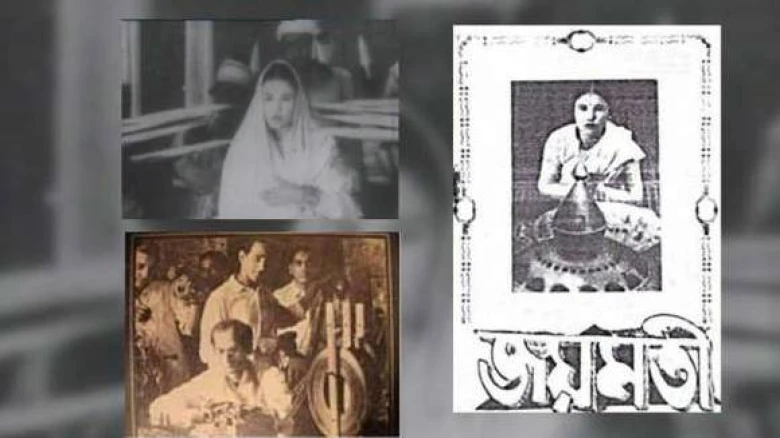Today, "Joymoti," the first movie ever to be screened in Assamese cinema, finished its 88-year journey.
Digital Desk: Rupkonwar Jyoti Prasad Agarwala, a veteran filmmaker, play writer, poet, composer, and freedom fighter, is credited with creating the magnificent history of Assamese cinema via his dreams and imaginative creations.
The story of Joymoti Konwari was turned into a movie by Jyoti Prasad Agarwala. Agarwala created a standard for the industry with his film.
Today, "Joymoti," the first movie ever to be screened in Assamese cinema, finished its 88-year journey. A seventeenth-century princess who endured a great deal of torment because she refused to desert her husband and children is the subject of the film.
The movie shows and makes you feel the suffering she endured throughout that time. Joymoti is still a nationalist movie that uses the delicate aspects of Assamese society to try to establish a cultural world.
In addition to receiving praise and respect from a segment of society, Jyoti Prasad Agarwala's groundbreaking effort resulted in debt because it was not commercially successful. Despite a captivating premise, the audience was turned off by the unclear dialogue that resulted from some sort of technical error.
During this time, the lead actress in the film had to endure years of banishment and social rejection. She received harsh criticism from the community because acting at the time was not something women were allowed to do. That was made worse for her by calling the male protagonist "Bongohor Deu," too.
The problems that were present in India in 1930 under British control were projected into the scenario of the movie. Thus, the movie's accurate portrayal had a political stance. It spoke in direct opposition to the theatrical acting, settings, and costumes that dominated Indian movies at the time. Several Indian regions also produced films with blatantly religious themes based on mythology. Joymoti, on the other hand, was based on authentic historical sources. But, even if we turn the text pages now, Joymoti, a specific woman, has not been mentioned in history books.
The inaugural performance of "Joymoti" took place on March 10, 1935, at the Rounak Mahal in Kolkata. The movie was filmed at the Bholaguri Tea Estate, a tea estate run by a family. Eventually, in 1934, the estate was transformed into Chitralekha Movietone, a movie studio.
It should be noted that while creating "Joymoti," Agarwala carved a regional aesthetic that is also a part of the international gallery that values avant-garde and experimental approaches in literature, music, and the arts.

Leave A Comment